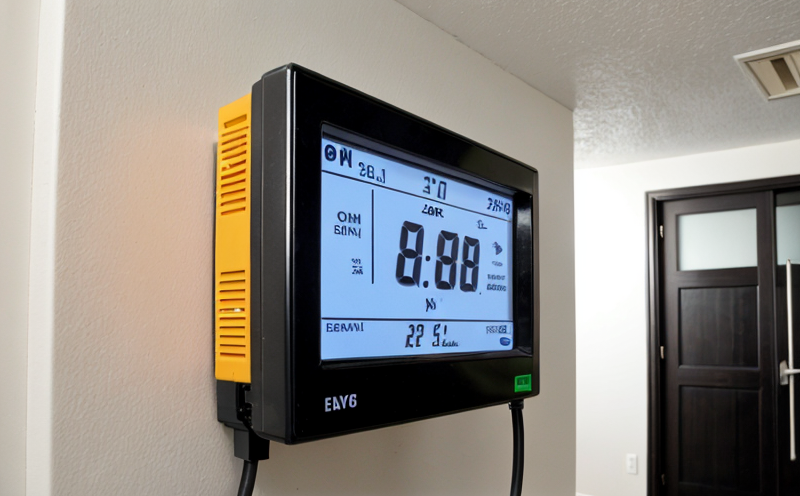IEC 60034-2-1 Motor Efficiency Testing
The International Electrotechnical Commission (IEC) has established a series of standards for electric motors, with IEC 60034-2-1 being one of the most crucial in defining methodologies and criteria for motor efficiency testing. This standard provides guidelines on how to measure and verify the efficiency classes of induction motors under specific conditions.
The primary purpose of this service is to ensure compliance with international regulations while providing reliable data that can enhance energy management strategies in industrial settings. The test focuses on measuring the electrical power input compared to mechanical output, thereby evaluating the overall performance and efficiency levels of an induction motor.
Compliance with IEC 60034-2-1 is essential for manufacturers who wish to ensure their products meet stringent international standards set by regulatory bodies. For quality managers responsible for ensuring product reliability and compliance, this service offers a robust framework to validate that motors perform as expected under controlled laboratory conditions.
For R&D engineers looking into developing new technologies or improving existing designs, IEC 60034-2-1 provides benchmarks against which prototypes can be tested. This helps in optimizing designs for better efficiency and reduced energy consumption without compromising on performance. Similarly, procurement professionals benefit from this service as it ensures they source only those motors that comply with global standards.
Before diving into the technical aspects of IEC 60034-2-1 motor efficiency testing, let us briefly understand what these motors are used for in the energy sector. Induction motors play a vital role in converting electrical energy into mechanical work across various applications such as fans, pumps, compressors, and generators. Their efficiency directly impacts operational costs and environmental impact.
The test procedure outlined by IEC 60034-2-1 involves several steps including but not limited to determining the ambient temperature, selecting appropriate load conditions, measuring both electrical input power and mechanical output torque, calculating losses, and finally computing efficiency. These calculations are performed using specific formulas provided within the standard.
One critical aspect of this testing method is ensuring that specimens meet predefined criteria before undergoing evaluation. This includes checking dimensions, rated power, type of insulation, and other relevant specifications to ensure accurate results. Once these prerequisites are met, detailed instrumentation plays a key role in collecting precise data throughout the process.
After completing all measurements, comprehensive reports detailing test parameters, specimen preparation methods, equipment used, calculated efficiencies, and interpretations thereof are generated. These documents serve as valuable tools for manufacturers to demonstrate compliance with international standards while also aiding potential buyers in making informed decisions about purchasing high-quality motors.
Applied Standards
| Standard Name | Description |
|---|---|
| IEC 60034-2-1:2017 | Method for Determining the Efficiency of Induction Motors |
| ISO 5809 | General Requirements for Induction Motors |
Industry Applications
- Manufacturing facilities seeking to reduce energy costs through improved motor performance.
- Eco-friendly initiatives within the industrial sector aiming for greater sustainability.
- R&D teams exploring advanced materials or configurations for next-generation motors.
- Procurement departments ensuring that all purchased equipment adheres to international standards.
Use Cases and Application Examples
- In a large-scale manufacturing plant, engineers use IEC 60034-2-1 testing to identify underperforming motors which could be replaced with more efficient models.
- A company involved in renewable energy projects uses this service to verify the efficiency of their wind turbines' generators before installation.
- An academic institution conducting research on electric drives utilizes IEC 60034-2-1 compliance testing as part of their studies into sustainable engineering practices.





